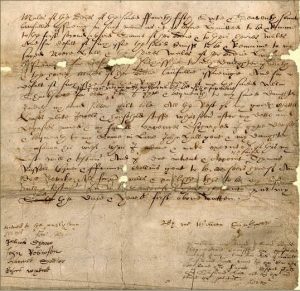Trusts as Beneficiaries of Retirement Accounts
Retirement accounts represent a life’s worth of savings. Yet, when a person’s life ends, his or her account passes beyond personal control and discretion. Foolish management and legal disputes can quickly eat away at a gift that was meant to last many years.

Retirement accounts represent a life’s worth of savings. Yet, when a person’s life ends, his or her account passes beyond personal control and discretion. Foolish management and legal disputes can quickly eat away at a gift that was meant to last many years.
However, just because a person is no longer around to enjoy a retirement account, does not mean he or she cannot protect it and ensure its proper use.

Beneficiary Woes
Qualified retirement plans, like a 401(k)s and IRAs, allow owners to name alternate beneficiaries. These beneficiaries receive control of the plan if the owner dies before exhausting its funds.
Banks or other companies that manage retirement accounts (called the “custodians”) must payout the account remainder, regardless of whether the owner chose a person to receive it. If no beneficiary was named, the custodian’s default guidelines go into effect, typically sending the account to the surviving spouse or the owner’s estate.
Since retirement account distributions are subject to income tax, immediate withdrawal of the fund’s full value will create significant taxes for its beneficiaries. To avoid this massive jump in income and continue the tax-free growth of the account’s money, inheritors generally want to either keep the account in place or roll it into a new one with a different custodian. Managed, long-term distribution is almost always preferable to withdrawing a lump sum
One of the biggest problems with inherited IRAs is the penalty for late withdrawal. Distributions are required every year. Failure to take out one of these required minimum distributions (RMDs) in time results in huge penalty fees and, in some cases, a complete restructuring of the payment schedule. Mistakes in handling inherited accounts are easy to make and usually irreversible.
(Several factors affect inherited retirement accounts -some come from the custodian, some from the government. This article is not meant as advice for individuals inheriting an account.)
What makes a Trust “Qualified”?
- The trust must be valid according to state law
- It must either be irrevocable or become irrevocable upon the owner’s death.
- The trust beneficiaries must be easily identifiable.
- A copy of the trust document has been provided to the custodian of the retirement account
Trusts as Beneficiaries
A trust is a legal entity created to own or manage property in place of its “grantor” (creator). If a grantor relinquishes control, the trust begins to operate as independent party. These “irrevocable trusts” are treated as individuals for tax and legal purposes. Retirement accounts and wills can name qualifying irrevocable trusts as their beneficiaries because they are considered legal individuals.
Like a will or retirement account, trusts distribute property to predetermined beneficiaries. Instead of giving property to another person directly, a grantor can give it to a trust and have it do the distribution on his or her behalf. This means a grantor can use a qualifying irrevocable trust to act like a conduit between a retirement account and intended beneficiaries. Here is how it works:
- The owner of the retirement account creates a trust and names it the beneficiary of the account. He or she establishes how the trust will receive money from the account and names the beneficiaries (primary and secondary) to whom the trust must pass account distributions.
- Because distributions are affected by the age of the beneficiary, the owner must file paperwork with the account custodian so it can apply the trust’s beneficiary information to the account. This is referred to as making a trust “transparent” and it allows a retirement account to make distributions to a trust as if it were a person.
- Upon the death of the owner, the trust will either remove the lump sum of the account or begin taking annual distributions (RMDs are determined by the trust beneficiary’s age).
- After receiving distributions, the trust will either immediately pass them on to its beneficiaries or hold onto the money depending on whatever guidelines the trust creator had predetermined. Distributions are taxed as regular income regardless of who receives them.
Advantages
The question now is: Why bother? If the taxation, payments and required timelines are all based on the final beneficiaries, what is the use of sending it through a trust? Does the trust even change anything?
Creating a trust is a measure of control and security. Rules imposed by a trust allow an account’s original owner to protect his or her money from going to unwanted parties or being put to improper use. If one of the beneficiaries is a minor, a trust might restrict his or her access to distributions until a certain age to prevent unwise spending. Since it is a legal individual, a trust can also keep account money outside of a beneficiary’s ownership, protecting it from creditors or divorce lawyers.
Additionally, trusts can switch from a primary to secondary beneficiaries after distribution has begun. Even if the primary beneficiary dies shortly after receiving distributions, the grantor still has predetermined who receives remainder of the account’s value. If the account had been given directly to the primary beneficiary, he or she would have selected the next beneficiary, possibly a person the original owner would not have wanted benefiting from the account.
Aside from this added control, trusts also shoulder the responsibility of taking out minimum distributions and ensuring the money is handled in the most efficient way possible. If a professional manages the trust, he or she will have experience in handling scheduled distributions and is obligated to act in the best interest of the beneficiaries. This can greatly reduce stress for beneficiaries and eliminate the chance of losing money to withdrawal penalties or complications.
Complex Vehicles
The regulations placed upon beneficiaries of retirement accounts can get complex. Spouses, non-spouses, estates, trusts and charities all have different regulations and planning that require cooperation between account custodians, trustees and legal representatives. For these reasons, things are more complex for the person inheriting an account than they are for the person naming the beneficiary.
Trusts shift the complexity of retirement accounts onto trained professionals. Creating and naming a trust beneficiary of a retirement plan can greatly reduce stress for loved ones and prevent funds from being lost to mismanagement.
Always contact legal and estate planning professionals when working with trusts or protecting the future of your accounts. The design and legal consequences of beneficiary trusts are extremely complex. Always work with legal representatives who are experienced in trust creation and estate planning.
The information contained in this article is not intended to be tax, investment, or legal advice, and it may not be relied on for the purpose of avoiding any tax penalties. Fingerlakes Wealth Management does not provide tax or legal advice. You are encouraged to consult with your tax advisor or attorney regarding specific tax issues. This article was written by Advicent Solutions, an entity unrelated to Fingerlakes Wealth Management. ©2013 Advicent Solutions. All rights reserved.
News and insights for your financial future.
Feel good about
your financial future.
Tailored guidance to help you make smart financial choices
Comprehensive planning and holistic wealth management
Advice that integrates with your values at every stage of life



